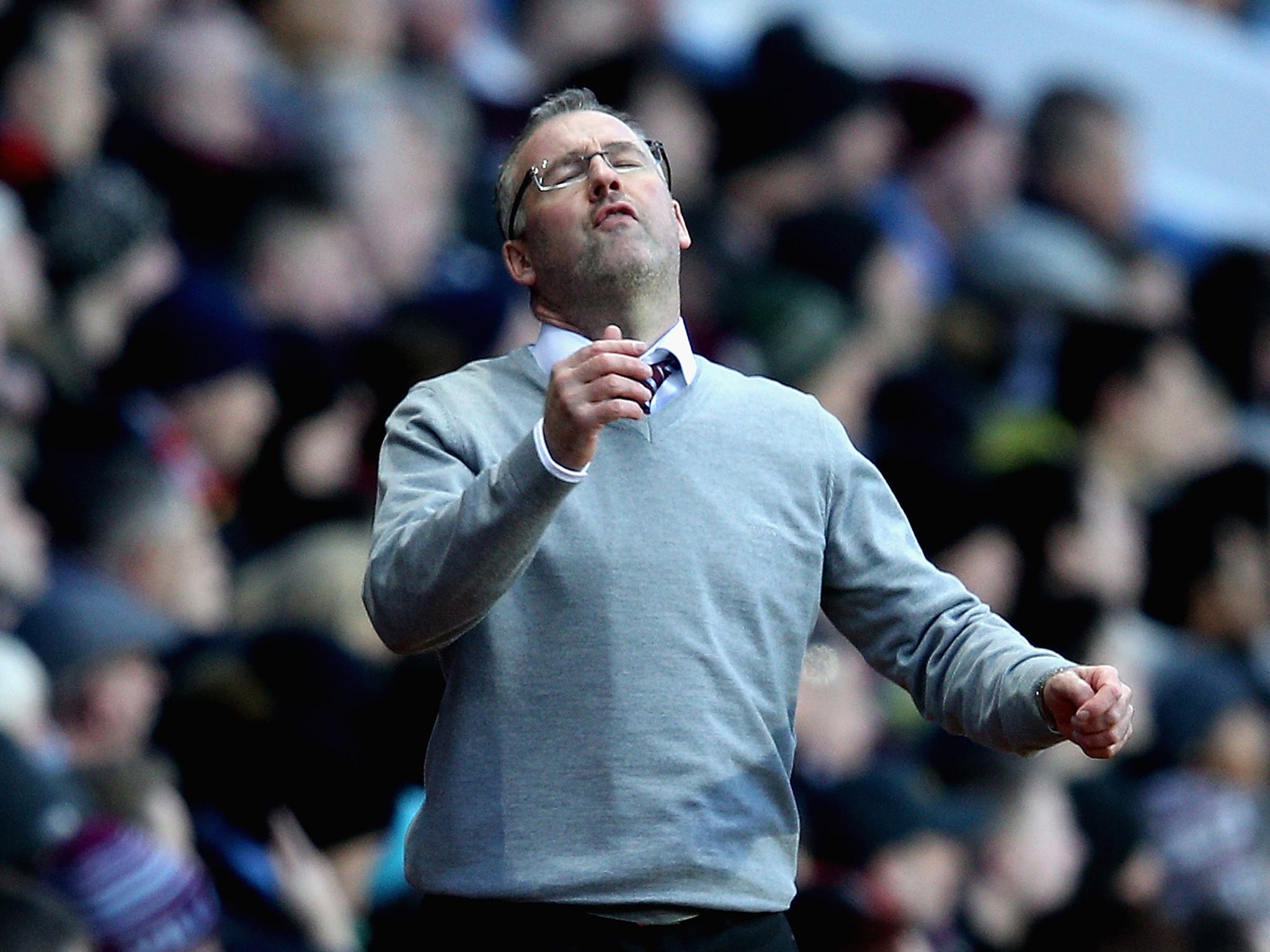“If you saw me before the European Cup final, that was pressure; I thought my arse was going to fall out of my shorts,” said Paul Lambert, recalling his feelings before the 1997 epic in which, as a player, he went on to help Borussia Dortmund overturn all odds by defeating Juventus. “Del Piero scores from a flick to pull it back to 2-1, now that’s also pressure.”
Aston Villa, like their manager, know what it is to win club football’s most glittering prize. Brian Moore’s commentary of the moment Peter Withe won the trophy in 1982 is inscribed on one end of Villa Park. “This club has been embroiled in some huge things,” said Lambert. “The ’82 team is probably the greatest side this club will ever see. But now the club is what it is. I don’t moan about it.”
There are plenty who do. Villa were booed off after Saturday’s 2-0 defeat by Liverpool. They had played quite well, better certainly than in the aimless 1-0 defeat at Leicester the previous weekend. However, it was still nearly nine hours of play since Villa last managed a Premier League goal and patience in this part of Birmingham was wearing thinner than a tramp’s overcoat.
Slogging through his third season at Villa, Lambert is aware of what some supporters think of him and is prepared to confront it. “Football has been my life,” he said. “I don’t know anything else. If you can’t handle the pressure, you are in the wrong game.
“I have been fortunate in playing at the top level in European Cup finals and things like that, so pressure has been part and parcel of my nature. You have to handle it. I am strong enough to handle it. You meet it head on; you don’t walk away from it. You fight it.”
The main enemy at Villa Park appears to be apathy. There was supposed to be a boycott of the first eight minutes of the match (one for every year of owner Randy Lerner’s rule) but few at the Holte End appeared to bother.
The pre-match draw prize was a thermostat – a very nice thermostat controlled by an iPhone – but if they wanted to help fans escape the freezing January temperatures and Villa’s terrible results, two weeks in Barbados might have generated more enthusiasm.
Lerner’s lukewarm attitude to the club is at the heart of the matter. The entrepreneur first became attracted to football while studying at Clare College in Cambridge, the year Aston Villa were reigning European champions.
Since he has failed even to take them into the Champions League, and spent around £200m on the project, the surprise is not that Villa is up for sale but that nobody seems very interested in buying it.
From the outside, Villa Park is a vastly more impressive stadium than Anfield or even the Etihad. Aston Villa has a sleek training facility at Bodymoor Heath, which unlike, say Leeds United with Thorp Arch, the club actually owns.
Villa is the biggest club in the second biggest city in England; it has history, hinterland, everything your average football-loving oligarch would want from his team.
“It is a brilliant club but the chairman said what he said,” said Lambert, referring to Lerner’s statement that his heart was no longer in the club and that it was time for “fresh, invigorated leadership”.
“He outlined what he was going to do with it – and that is his prerogative, he owns the club. The club probably isn’t what it was six or seven years ago but finances dictate a lot, especially in this league.”
Brendan Rodgers would agree. The pressure and expectation of being manager of Liverpool are remorseless. After a 3-0 defeat at Manchester United and exit from the Champions League last month, Rodgers publicly wondered how he, a man hailed as manager of the year last season, could now be portrayed as “useless”. Since then, Liverpool have taken 14 points from six matches.
He and Lambert grew up as managers in the Championship, Rodgers with Swansea City, Lambert at Norwich. Both won promotion in the same year, 2011, before moving to one of the great institutions of English football to work for American owners. It is the quality of those owners that divides them.

Join our commenting forum
Join thought-provoking conversations, follow other Independent readers and see their replies
Comments